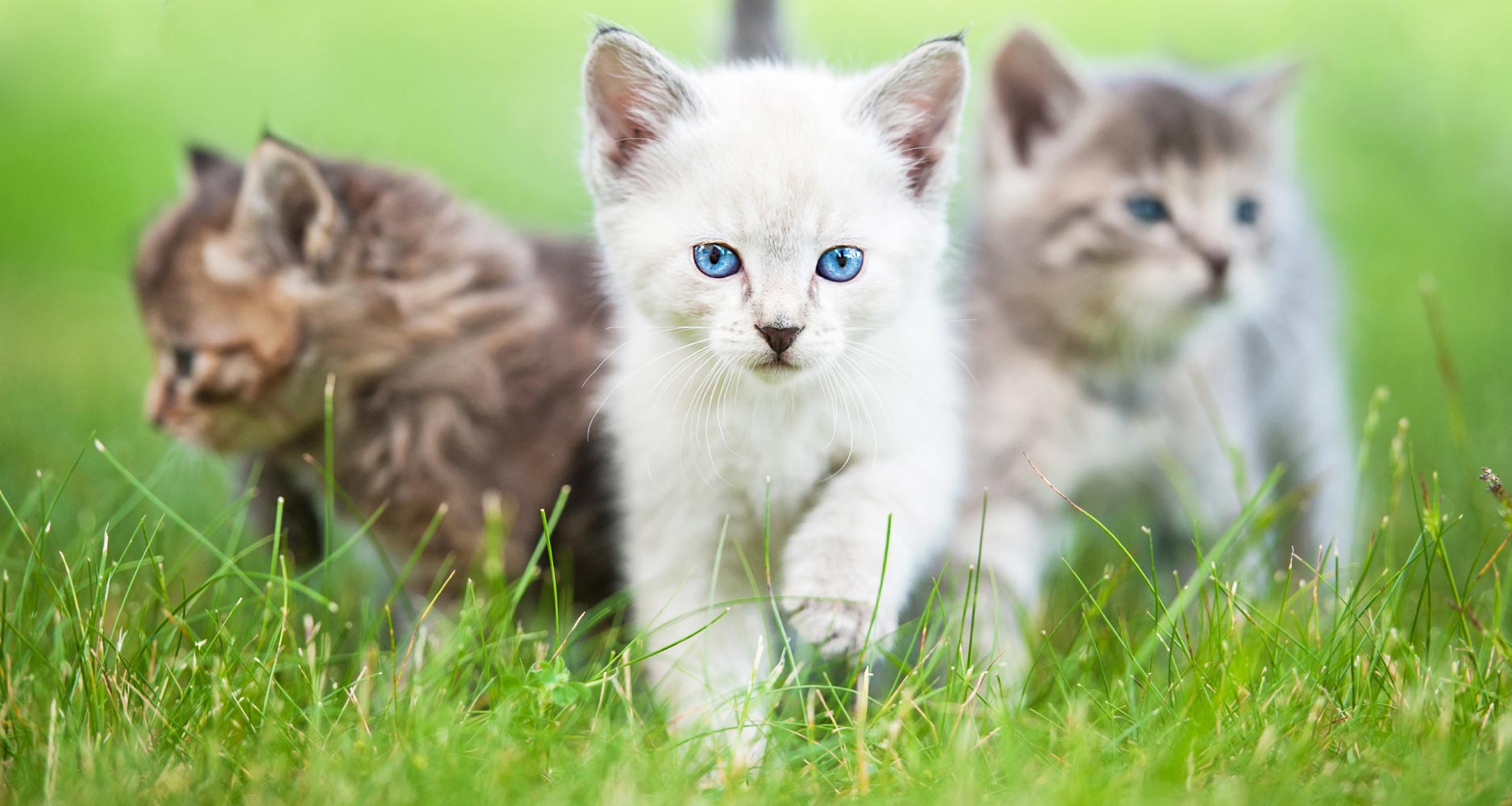TRAINING & BEHAVIOR

TRENDING

SIGN UP and Start Receiving
Our Monthly Newsletter,
The Chronicles
SOCIALIZING YOUR CAT

It might not be common knowledge, but cats also need to be socialized. Luckily, you can find out how to socialize your cat here or share the tips with other cat owners who could benefit.
WHAT IS CAT SOCIALIZATION AND WHY IS IT IMPORTANT?
Your cat needs to trust you, others in her environment (animals, humans and especially children) and get used to her home.
You don’t want a scared, distrustful or even aggressive cat, but rather a trusting, loving cat that’s well-behaved.
TIPS AND INSIGHTS
Each cat is different. Their breed, personality and whether they’ve been socialized before you got them, all makes a difference.
Just stay calm, patient and positive. Also be sure to introduce routines for further structure and comfort. Help your cat get used to sounds, smells and sights as well as her personal areas.
HANDLE YOUR CAT
To avoid raising a scared cat that scratches or bites, handle your kitten in 15-minute sessions and let her get used to receiving affection. If you have a rescue cat, slowly introduce touch and holding to let her know this interaction is OK. The process may take longer, but it can work.
The top of the head is usually a safe place to start. You can either pick her up next or continue to stroke the feet gently with your fingertips. Then, give the belly, tail and back attention. While you’re doing all of this, talk to your cat in a soft, calm voice. If you notice any agitation you can end the session and give your cat some space. Don’t tolerate. Simply say, “No!” and end the session. If the session went well, treat your kitty. Repeat these sessions a few times every day. Later make each session a bit longer. With time, also gently open her mouth and run your fingers across the gums to make grooming and future veterinary visits much easier. Be sure to reward good, calm behaviour with a “Good Kitty!”
It might seem obvious, but never hurt your cat or scream at her. It won’t help or fix anything, in fact, you’ll just fuel her fear and increase distrust. Always approach with care, use a calm, soothing voice and handle her gently.
MAKE TIME TO PLAY WITH YOUR CAT
Deep inside, your kitten or cat is a little predator with a desire to hunt.
She might be into live creatures or not at all, either way, using a toy with a sprinkle of catnip is a great way to spend quality playtime. Try a few toys to see which one she likes best and play a few times a day, every day. By doing this you can avoid unfavourable predatory behaviour, for example ankle attacks, and strengthen your bond.
Remember: don’t tolerate bad behaviour, for example, attacks during playtime. Rather say “No!” and end the session. Simply try again later.
BRING NEW PEOPLE INTO YOUR CAT’S LIFE
Before you bring around friends and family your cat doesn’t know, make sure your cat at least trusts you.
If you want your cat to start feeling safe and comfortable around others tell them to also use the right volume and tone of voice to communicate when talking to her or holding her.
This process can take time and interaction should not be forced. See if your cat approaches others on her own, if not, give it some time. Often a few visits are needed before your cat feels comfortable.
WHAT IF YOU’RE NOT SUCCESSFUL?
Don’t lose patience. Some cats need more time; others may stay antisocial or only become socialized 90%.
Don’t give up and don’t worry if there’s a nip or scratch every now and then. It may take years, but don’t stop reinforcing good behaviour and discouraging bad behaviour.
Happy socializing!
Related Articles










